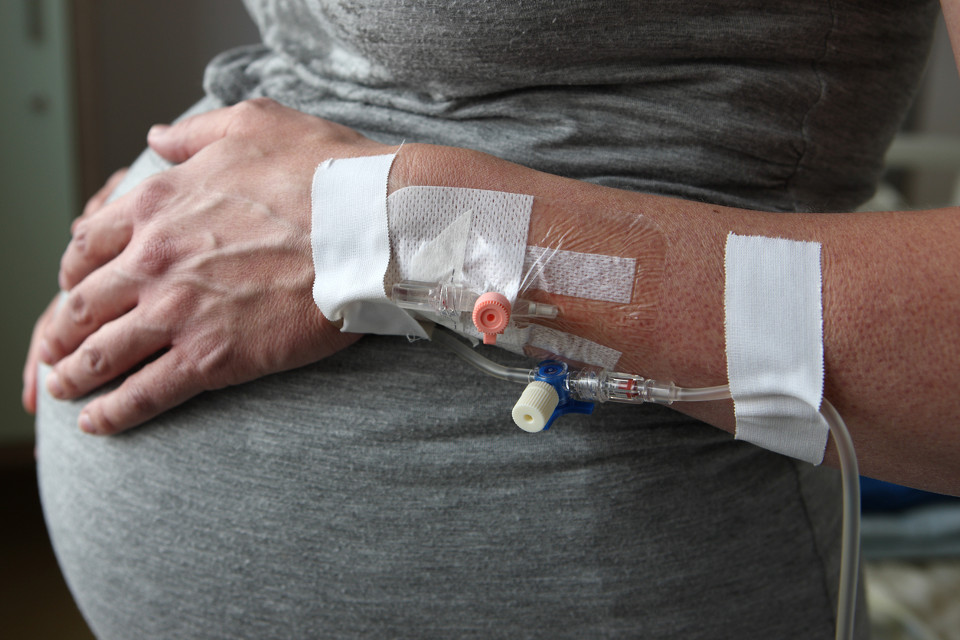When Pregnancy Makes You Sick: What Is Morning Sickness?
From mild nausea, to vomiting so severe it requires a hospital stay, more than half of all pregnant women are plagued by morning sickness. But what exactly is it, and what does it mean?

Morning sickness: fast facts
- While we all like joke that morning sickness should be called all-day-sickness, it is generally worse earlier in the day.
- It usually kicks in at around the fourth week of pregnancy, and starts to improve and even disappear at about the 12th to 14th week.
- One in five women will continue getting morning sickness into their second trimester.
- Some will have it right until they have their baby.
- Generally, it won’t harm you or your baby, unless it’s an extreme case.
Symptoms
- For some women, it starts as a general nauseous feeling in the belly.
- A lack of appetite.
- Vomiting
- It can also have more serious impacts, such as depression and anxiety. This can be due to the impact on the quality of your life when you are constantly feeling sick and vomiting, leaving you unable to work or function properly. If you are feeling like this, make sure you see your doctor.
What causes morning sickness?
Interestingly, science still hasn’t been able to pinpoint a reason for morning sickness, but it’s thought things like hormones, blood pressure fluctuations, altered metabolism and chemical changes all play a role.
A study by a Cornell University grad student and his adviser found that meat, fish, poultry and eggs are big morning sickness triggers for women. We’re told to avoid some of these foods in pregnancy, if prepared in certain ways (for instance raw egg). The reason scientists believe even just the smell of some of these things makes us nauseous when we’re pregnant is actually evolutionary – meat was once a food that would have carried many parasites.
Will it harm your baby?
According to Better Health, while vomiting may cause you some soreness in the abdominal muscles, this won’t physically harm your baby.
There are schools of thought that morning sickness is a good sign of a healthy baby, and there are studies that have linked moderate morning sickness with a reduced risk of miscarriage. But vomiting that continues for a long time and leads to weight loss and dehydration can cause some risks to both you and baby, so seek medical advice.
Does it mean I’m having twins? Or unlikely to have a miscarriage?
A study published earlier this year found that experiencing nausea and nausea with vomiting was linked to a 50 to 75 per cent reduction in risk of losing a pregnancy.
There are some studies that have suggested a link between human chorionic gonadotropin (HCG) and morning sickness. Because HCG is higher in women who are pregnant with multiples, it’s thought they may suffer worse morning sickness.

Hyperemesis gravidarum (HG)
Severe morning sickness is known as hyperemesis gravidarum (HG), and was given a much wider audience after the Duchess of Cambridge suffered it with her first pregnancy. The persistent vomiting can lead to weight loss and dehydration requiring hospitalisation.
According to Better Health, untreated cases of HG can lead to:
- Electrolyte imbalances
- Extreme depression and anxiety
- Malnourishment of the fetus
- Excessive strain on vital organs, including the liver, heart, kidneys and brain.
Helping ease morning sickness
Here are some suggestions on how to try and beat the nausea (courtesy of Health Direct):
- Try and get some food in your tummy before you get out of bed – something like dry crackers or water may help.
- To try and keep the nausea at bay, eat small meals often throughout the day.
- Avoid fatty foods and coffee.
- Eat when you feel like it, don’t wait for meal times.
- Ginger has been known to help ease feelings of nausea.
- If the smell of food is putting you off, get someone else to prepare your meals.
- Try different types of food – sweet, salty, crunchy etc, to see if any make you feel less sick. You can download our FREE Healthy Pregnancy Eating & Exercise Plan for great ideas!
- You can also try The Healthy Mummy Morning Sickness Smoothie!
- Drink lots of water – six to eight glasses a day. If you’re vomiting a lot, make sure you up your fluid intake.
- You can try acupressure wristbands that are designed for travel sickness.
For more information on staying healthy with a baby bump, take a look at our dedicated pregnancy section.









